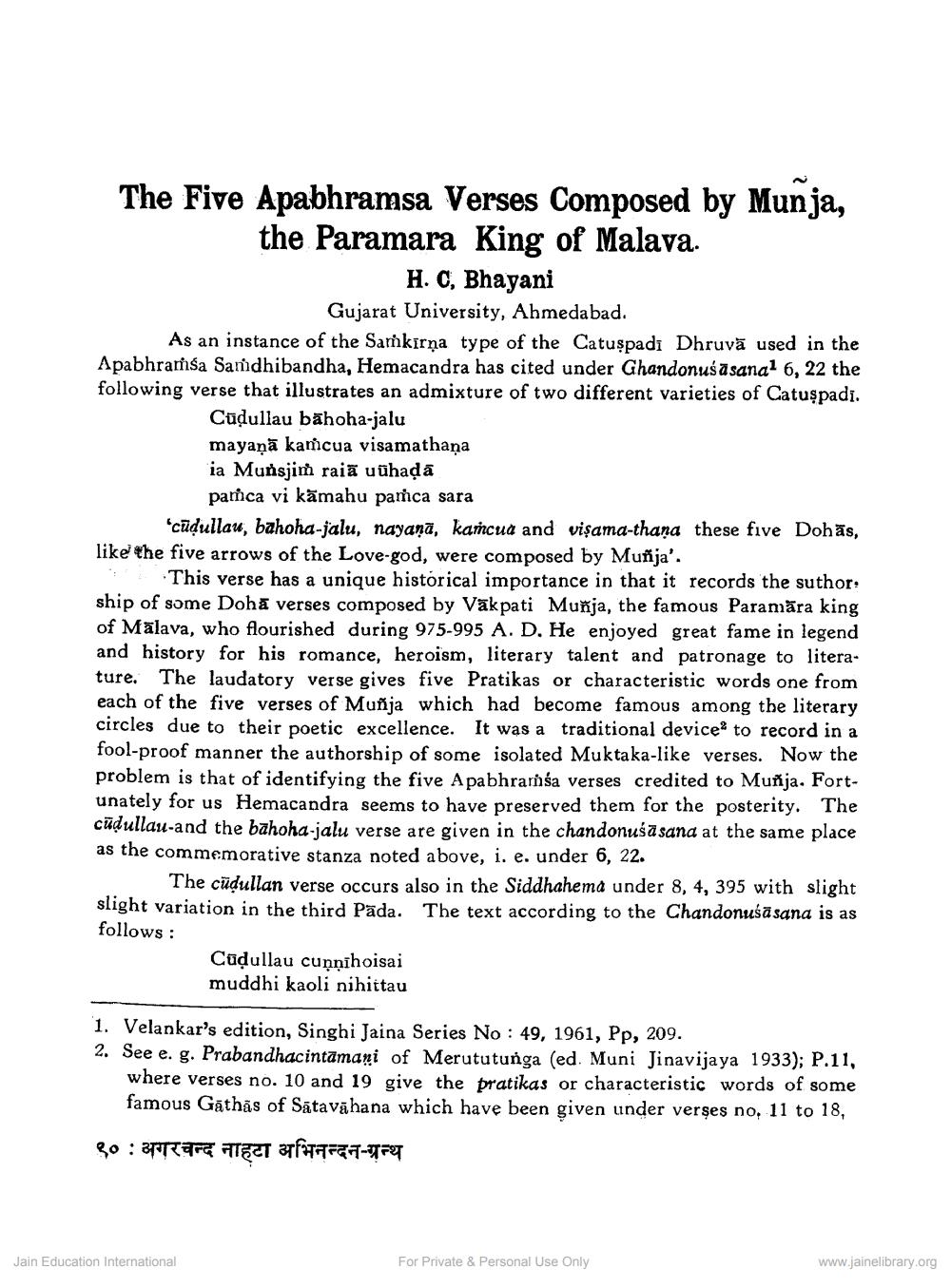Book Title: Five Apbhramsa verses composed by Munja king of Malava Author(s): H C Bhayani Publisher: Z_Nahta_Bandhu_Abhinandan_Granth_012007.pdf View full book textPage 1
________________ The Five Apabhramsa Verses Composed by Munja, the Paramara King of Malava. H. C. Bhayani Gujarat University, Ahmedabad. As an instance of the Sathkirna type of the Catuspadi Dhruva used in the Apabhrathisa Samdhibandha, Hemacandra has cited under Ghandonusasana1 6, 22 the following verse that illustrates an admixture of two different varieties of Catuspadi. Cudullau bahoha-jalu mayana karticua visamathana ia Munsjim raia uthaḍa patica vi kämahu parca sara 'cüdullau, bahoha-jalu, nayana, kahcua and visama-thana these five Dohas, like the five arrows of the Love-god, were composed by Muñja'. This verse has a unique histórical importance in that it records the suthor. ship of some Doha verses composed by Väkpati Munja, the famous Paramāra king of Malava, who flourished during 975-995 A. D. He enjoyed great fame in legend. and history for his romance, heroism, literary talent and patronage to litera ture. The laudatory verse gives five Pratikas or characteristic words one from each of the five verses of Muñja which had become famous among the literary circles due to their poetic excellence. It was a traditional device to record in a fool-proof manner the authorship of some isolated Muktaka-like verses. Now the problem is that of identifying the five Apabhrathka verses credited to Muñja. Fortunately for us Hemacandra seems to have preserved them for the posterity. The cidullau-and the bahoha-jalu verse are given in the chandonusasana at the same place as the commemorative stanza noted above, i. e. under 6, 22. The cüdullan verse occurs also in the Siddhahema under 8, 4, 395 with slight slight variation in the third Päda. The text according to the Chandonusasana is as follows: Jain Education International Cudullau cunnthoisai muddhi kaoli nihittau 1. Velankar's edition, Singhi Jaina Series No: 49, 1961, Pp, 209. 2. See e. g. Prabandhacintamani of Merututunga (ed. Muni Jinavijaya 1933); P.11, where verses no. 10 and 19 give the pratikas or characteristic words of some famous Gathas of Satavahana which have been given under verses no, 11 to 18, ९० : अगरचन्द नाहटा अभिनन्दन ग्रन्थ For Private & Personal Use Only www.jainelibrary.orgPage Navigation
1 2 3 4
